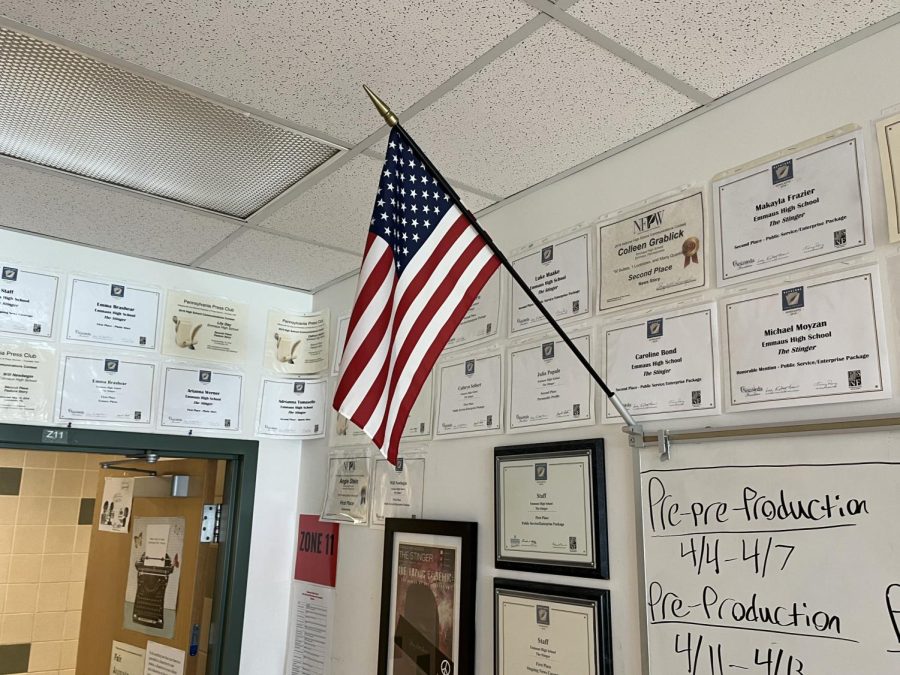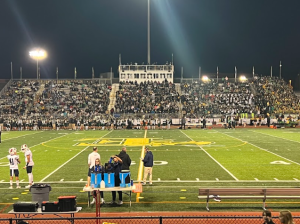Students don’t need to stand for the pledge
May 13, 2022
This previously ran in our April 2022 print issue.
American high schools allot time each day for the Pledge of Allegiance to be recited by students, but in recent years, many have refused to participate in this daily routine, landing them in hot water with school staff.
Just the other day, the Pledge of Allegiance was about to be recited in a class: the National Anthem had finished playing, the students had placed their hands over their hearts, and a silence filled the room. No one said a word until laughter echoed off the walls. No one found it disrespectful that the Pledge wasn’t being said; instead, they found the situation comedic.
Students in schools, in the past, have been seen proudly saluting the American flag and reciting the Pledge of Allegiance vehemently. However, as students mature and learn more about the country they live in, they seemingly lose interest in the activity which they used to take pride in. These students generally stay silent during the Pledge — a harmless act — while some take it a step further and refuse to stand. Others even decide to walk during the Pledge, an act which some feel is disrespectful.
These offended school-goers have a point: Some school districts are required to provide time in the morning for students to recite the Pledge, and these students simply wish that the time allocated for them is respected. They are utilizing their First Amendment rights to honor their country.
However, these students have misconstrued the idea that everyone wants to say the Pledge of Allegiance, or that everyone wants to honor their country. This is, of course, not the case. More and more students are simply refusing to stand or speak during the Pledge.
These students are within their rights just as much as the aggrieved students and staff. They are exercising their First Amendment right to refuse to speak — and according to the 1943 West Virginia State Board of Education v. Barnette court case, students cannot be forced to stand for or recite the Pledge of Allegiance, nor do they need to salute the flag.
Some might say that sitting during or refusing to recite the Pledge, or walking during the Pledge, interrupts those who wish to honor the flag. This seems rather ridiculous, as a lack of action or speech cannot be overwhelmingly distracting to the point of disrespect, especially as some students refuse to recite the Pledge for religious reasons — exercising their First Amendment right once again.
Students should, under no circumstances, be punished or shamed for utilizing their right to stay silent during the Pledge, and as long as they aren’t interrupting anyone, they should be allowed to walk during it, too. Any student that wishes to recite the Pledge should be allowed to do so, but the expectation that all students need to recite the Pledge in the morning needs to end.












